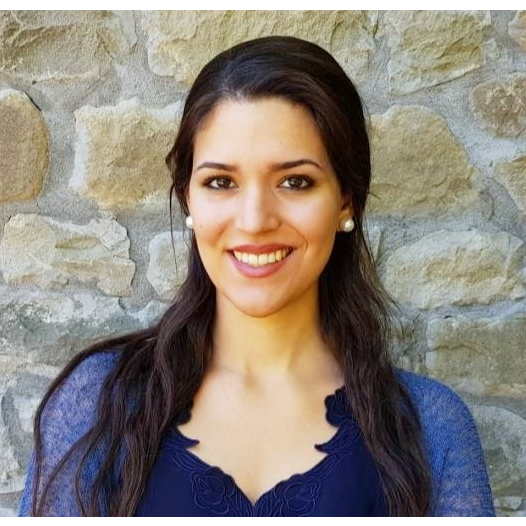Course Description
Living Greek in Greece is an intensive Ancient Greek language and literature experience set in the Peloponnese. In two seminar-style meetings every day, participants read and discuss Ancient Greek literature and philosophy. To the extent possible, the language of instruction in these seminars is Attic Greek.
In addition to the daily seminar sessions, the program includes a variety of optional programming designed to build students’ facility in speaking and understanding Greek, as well as lectures on topics relating to Greek literature, history and culture. The program also features a trip to important sites in Greece that are relevant to the year’s theme or text.
In 2024 the Living Greek in Greece program will read Gorgias’s Encomium of Helen, along with other short passages about Helen from authors such as Homer, Sappho, Herodotus, and Euripides. Site visits will include Sparta, Mistras, and Mount Taygetos.
Prerequisites
Participants should know the basics of Greek grammar. This usually means the equivalent of one year of college Ancient Greek. No experience speaking Greek is required, but experienced Greek speakers are also encouraged to apply. Paideia alumni and Nexus members are particularly encouraged to apply.
Participants must be 18 years or older. Students under the age of 18 and students who have not yet graduated from high school should consider Living Greek in Greece High School.
Classrooms
Classes at Living Greek in Greece are held at the Hellenikon Idyllion, a hotel and Hellenic cultural center located in the charming seaside village of Selianitika on the north coast of the Peloponnese. Classes take place outdoors in a lush garden, just a few meters from the beach.
Teachers

Nikoletta Kokosiouli

Roberto Salazar

Anna Conser

Fernando Morais
Photos
Tuition and Fees
The tuition for Living Greek in Greece is $2500. This includes instruction and transportation, two group meals, and housing during the weekend trip to Sparta. It does not include housing in Selianitika. The Institute will also operate a free shuttle to and from Athens on arrival and departure day. Participants should bring their own edition of the program’s main text.
Housing and Other Costs
Participants must arrange their own housing in Selianitika (housing during the weekend trip will be provided by the Institute). The Paideia Institute has negotiated discounted group rates with trusted housing providers in dorm, hotel, and apartment style accommodations. Approximate rates for each type of lodging for the duration of the program are listed below. Contact information for housing providers and group discount codes will be provided upon acceptance. Upon enrollment, participants will also be able to contact each other to arrange shared housing if desired.
Estimated costs of housing at suggested hotels are below (subject to availability):
- Dorm accommodation at the Hellenikon Idyllion: $600
- Hotel room shared with another participant: $780
- Single Hotel Room: $1000
- Private Apartment (limited availability): $1500
Airfare, transportation to and from the airport, daily expenses for meals, and spending money are not included in the cost of tuition. The cost of life in Greece can vary greatly depending on one’s tastes, but at the very least we recommend that participants budget €20/day for food. Please consider the exchange rate when planning your budget.
Scholarships
The Paideia Institute is able to offer a number of full and partial scholarships to students with demonstrated financial need. Please visit our scholarships page to learn more. Scholarship applications received by the priority application deadline for the program (March 1, 2024) will receive fullest consideration.
Request an Application
For the highest chance of admission, please submit your completed application by the priority deadline of March 1, 2024. Applications received after March 1 will be considered on a rolling basis while space is available.
What People Are Saying
"The Paideia Institute is unique not only in its approach to language instruction, but also by virtue of the startling expertise and talent harnessed by its staff. What a treat it was to spend two weeks with high-level classicists and fluent speakers of ancient Greek, all of whom were delighted to help me make the most of my learning experience. Looking back, I am almost perplexed by the fact that, more than the program’s rich curriculum and its near-fantastic setting, it is Paideia’s didactic talent that stands out in my mind. I feel particularly lucky to have been a part of a learning program focused on a dramatic performance. While living ancient Greek is enriching on its own, living a heightened version of life in ancient Greek made for an even more intense learning experience. Committing pages of Greek text to memory was one of those tasks that seemed utterly unimaginable at first – and, once completed, made me see myself in a new light. I am excited to, in the future, approach ancient tragedy with an appreciation that is both more informed and more personal than it was before." -Daphne Busek, '22 and '23
"The immersive approach, expert faculty, beautiful setting and wonderful food combined to make this the perfect summer getaway for any avid hellenist." - David Greenwald '22 and '23
"My experience this summer with Paideia was incredible, educationally and interpersonally. My Greek improved by leaps and bounds, especially in small group sessions with my instructor. I am very grateful not only to have this spoken Greek experience, but to have it in Greece itself and with so many wonderful and knowledgeable people. " - Danny O. '22
"Living Greek in Greece provides a context for ancient Greek language learning that is not elsewhere replicated. While using spoken pedagogy in modern-day Greece, the world-class teachers nevertheless see the program as a means to unlocking the niche of classical history, poetry and philosophy. " - Will '22











